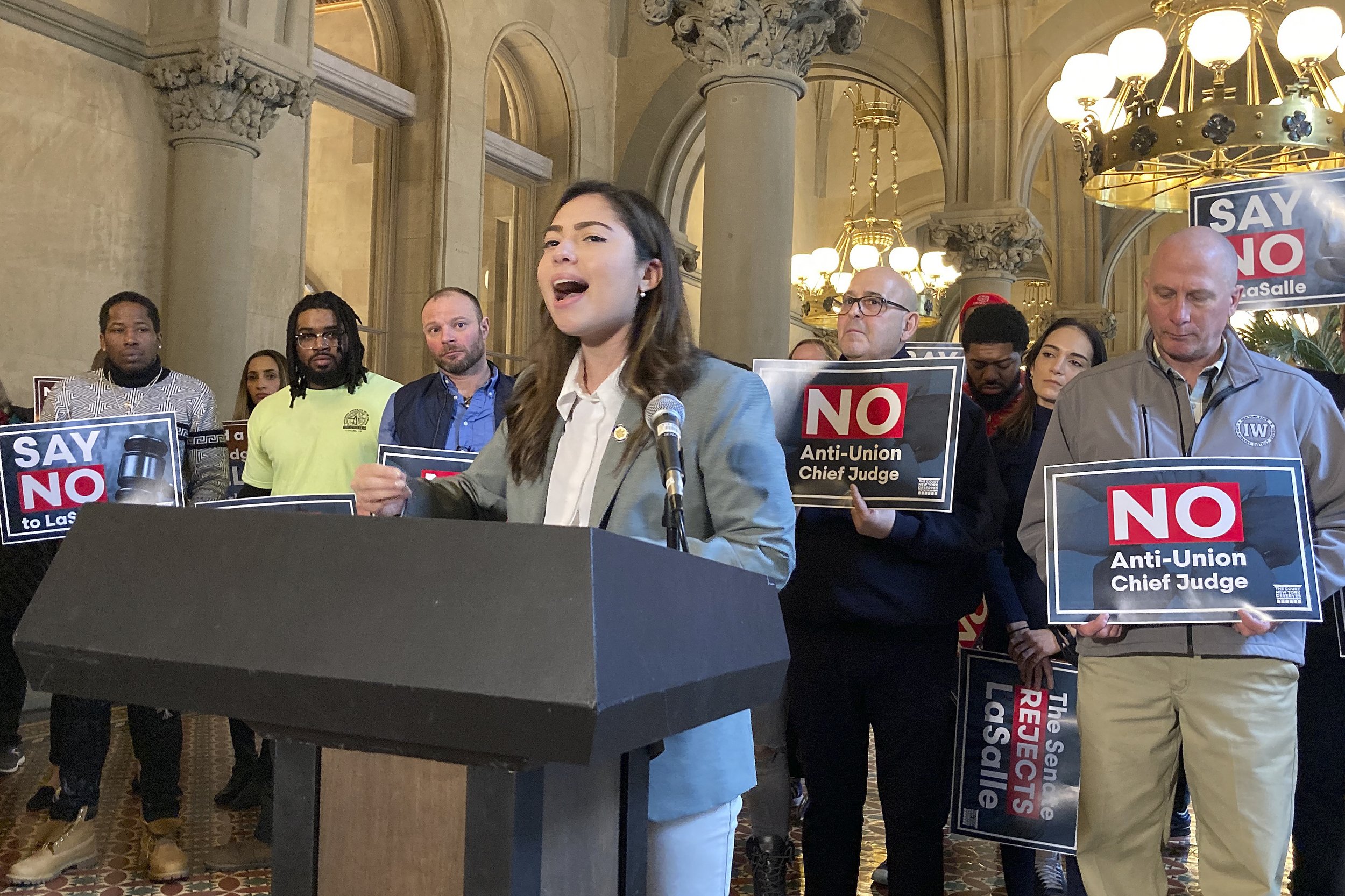Queens pol wants to make it easier to bring class action suits against government
/Queens State Senator Kristen Gonzalez is sponsoring a bill that would eliminate barriers to bringing class action lawsuits in a state court against the government. AP file photo by Michael Hill
By Jacob Kaye
A Queens lawmaker is pushing a piece of legislation that would make it easier for class action lawsuits to be brought against New York’s state and local governments.
Queens State Senator Kristen Gonzalez is serving as the sponsor of a bill that would eliminate the state’s “governmental operations rule,” which prevents class action lawsuits from being certified in cases alleging state or local government wrongdoing.
The bill, which was passed by the Senate Judiciary Committee on Tuesday, would prevent judges from denying class certification solely because the legal action involves governmental operations, but would allow judges to continue to deny class certification if the suit doesn’t meet other class action standards. The legislation would bring New York’s process for certifying class action lawsuits more in line with the federal standard, which does not feature a governmental operations rule.
“By removing that definition and expanding who can be eligible for a class action lawsuit, that's one additional barrier removed for people to be able to hold agencies accountable,” Gonzalez told the Eagle on Wednesday.
Supporters of the bill say that state court judges often deny class actions that involve a government agency because they believe that another plaintiff could bring the same suit and win the same relief through the precedent the original suit sets.
But the bill’s supporters say that requiring multiple plaintiffs to bring multiple suits clogs up the court system.
Additionally, more often than not, cases where class certification is sought involve marginalized communities, who may not individually have the resources to successfully engage in a long court battle against the city or state.
“Class actions have challenged the failures of New York's foster care system, failing health standards, they’ve ensured mentally ill prison inmates treatment plans and discharge,” Gonzalez said. “And so while we have had class action lawsuits against the government, because of this government operations rule, there was a chance that each of those cases could have been thrown out, and there are others that do get thrown out.”
“These are all marginalized communities,” she added. “There should be as few barriers as possible for them to be able to plead their case in the court of law, and to band resources together to hold the government accountable.”
The bill was first introduced during the 2009 legislative session. It has been introduced six other times after that, not including its most recent introduction during this current legislative session. The State Assembly has passed the bill several times, marking the furthest the bill has made it along the legislative process. The Senate has yet to ever advance the bill beyond committee.
But Gonzalez, a freshman lawmaker, said she picked up the bill because it aligns with her vision to make the state government “transparent and accountable, and also responsive to the needs of everyday New Yorkers.”
Long Island Assemblymember Michaelle Solages, who has been in the legislature for a little more than a decade, has been a prime sponsor of the bill a number of times it’s been introduced.
"The idea that the government is a special litigant is incorrect,” Solages said in a statement. “One of the most cherished principles of our law is that all litigants, rich and poor, government or private citizen, stand equally before the courts.”
“I am proud to sponsor this bill alongside Senator Gonzalez, which will bring greater accessibility and fairness to a legal system that too often only acknowledges those who can afford an attorney, by eliminating the so-called government operations rule for class action certification,” she added.
The Legal Aid Society, which represents a number of plaintiffs in class action lawsuits against the city or state in federal court, has long been a supporter of the legislation.
“We often represent civil rights litigants who face barriers in getting class certification because of the government operations rule,” said Phil Desgranges, the supervising attorney of the Special Litigation Unit at the Legal Aid Society.
“Those barriers stand in the way of groups of folks who've been harmed by some policy or practice from getting widespread relief and instead forces individuals to come back and forth to court on an individualized basis, in a way that slows progress, slows relief to those folks, whereas in federal court, they'd be able to get widespread and almost immediate relief in a much more efficient manner,” Desgranges added.
Gonzalez said that while she understands that some of her fellow lawmakers may not want to make it easier for New Yorkers to sue the government, she said she sees the bill as a way for elected officials to empower their constituents.
“Once something is ruled in favor of the plaintiff class against a government agency, it will lead to change and that [illegal action] won't happen again,” she said. “And that's what we're here to do. That's what we should be representing.”
“I think this year and next year, we want to push people to really reframe the argument away from protecting the government and more toward protecting New Yorkers,” she added.




